After the gunshot that took President Lincoln's life in 1865, John Wilkes Booth tried to escape to Virginia with a broken leg but was ultimately unable to escape.
On the evening of April 14, 1865, 26-year-old actor John Wilkes Booth quietly walked into Ford’s Theater in Washington, DC. No one paid any attention because Booth performed there regularly. Booth even used the theater’s address as his mailing address because he had no permanent residence in the city.
Shortly after 10 p.m., Booth walked to President Abraham Lincoln's private balcony while he was watching a play on stage. He locked the door behind him so no one else could enter. Booth waited patiently, knowing that the audience would burst into laughter at some humorous detail in the play.
As Booth had expected, as the audience roared with delight, he walked up to President Lincoln with a small pistol, aimed it at his head, and pulled the trigger.
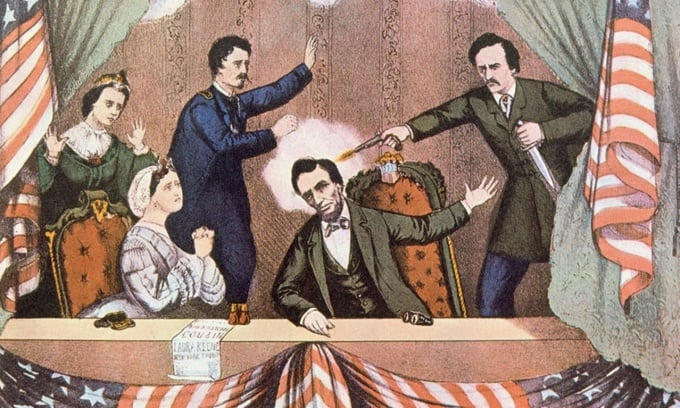
Painting depicting the moment Booth assassinated President Lincoln. Photo: Everett Collection Historical
The assassination took place at the end of the American Civil War, which was fought between the Union and the Confederacy. After Lincoln was elected president in 1860, 11 slave states in the South declared their secession and formed the Confederacy. The remaining 25 states supported the government known as the Union.
Booth and several other Confederate sympathizers wanted to assassinate three of the Union's most important officials, including Lincoln, Vice President Andrew Johnson, and Secretary of State William H. Seward.
After witnessing Lincoln being shot, Major Henry Rathbone, who was sitting near the president, tried to restrain Booth but was stabbed in the arm by the actor. Booth then jumped from the balcony, tripping and breaking his leg. However, he quickly got up and ran across the stage.
Many spectators thought Booth was an actor in the play and did not react. After First Lady Mary Lincoln and Rathbone shouted "stop him", many people rushed forward to try to catch Booth, but he ran out of a side door of the theater and escaped on horseback.
Half an hour later, Booth crossed the Navy Yard Bridge into Maryland. Booth's escape almost ended when a guard stopped him because civilians were prohibited from crossing the bridge after 9 p.m. However, after Booth calmly identified himself and explained that he needed to get home to a nearby town, the guard let him through.
Booth met David Herold, 23, his co-conspirator in the plot to kill three of the Union's most powerful officials, on his way to Surrattsville, Maryland, about eight miles from Ford's Theater. They went to a saloon to pick up guns, binoculars, ammunition, and a bottle of whiskey that they had asked the innkeeper to have ready.
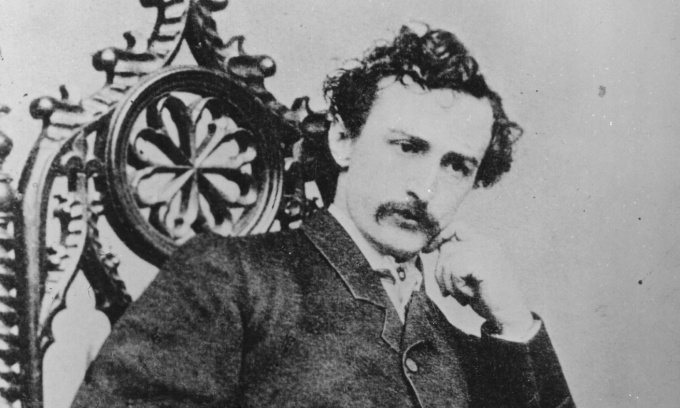
John Wilkes Booth, assassin of US President Abraham Lincoln. Photo: Hulton Archive
On the second day of their escape, April 15, around 4 a.m., they found a doctor’s house. He helped put a splint on Booth’s broken leg and let the two men sleep in his house, not knowing who they really were.
About 15 miles away, at 7:22 a.m., doctors pronounced President Lincoln dead at the age of 56. Booth had accomplished one of his three goals. Booth's accomplices failed to assassinate Vice President Andrew Johnson and Secretary of State William H. Seward as originally planned.
On the morning of April 16, Booth shaved off his mustache to disguise himself and left the doctor's house. The two then went to the home of Samuel Cox, a Confederate sympathizer. Realizing the danger, Cox decided not to let the two men stay in the house. He instructed them to hide in the pine woods outside his property, promising that help would come.
Thomas Jones, a Confederate agent, then met Booth and Herold in the pine woods. Jones brought food, whiskey, and newspapers, which Booth was eager to see. He wanted to know how the country was reacting to his actions.
Jones told the two that they would have to wait a while to cross the Potomac River into Virginia. Jones said that Union troops were in the vicinity and that it was dangerous to move from their hiding place at this time. This news, along with the worsening condition of his broken leg, greatly upset Booth.
On April 19, as President Lincoln’s funeral was taking place after noon in the East Room of the White House, Booth and Herold remained in the pine woods near Rich Hill. They were impatient but heeded Jones’s warning. Plus, they had plenty of whiskey to keep them busy.
On April 20, Jones took Booth and Herold to the Potomac River at dusk to board a boat. The two men got lost in the darkness and fog, but the fog helped them hide as they passed a Union gunboat. After many hours of cold paddling, they reached Virginia on April 23.
On April 24, Booth and Herold arrived at the farm of Richard Garrett, a tobacco farmer. Booth claimed to be a wounded Confederate soldier in need of shelter and was given shelter.
To find Booth, one of the largest manhunts in American history took place, with thousands of soldiers mobilized and civilians enthusiastically participating. Secretary of War Edwin M. Stanton directly directed the campaign, offering a reward of $50,000 (equivalent to $900,000 in today's value) for information leading to Booth.
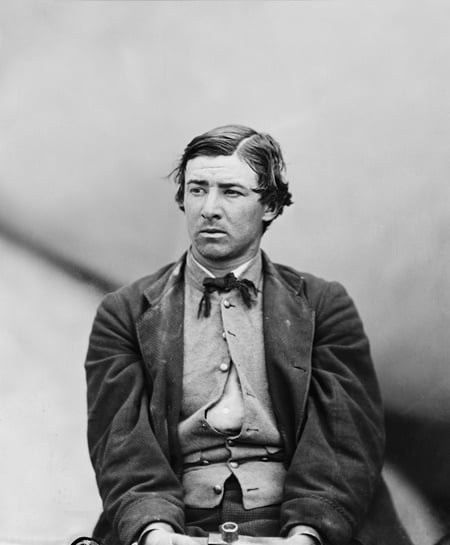
David Herold, Booth's accomplice. Photo: Wikimedia Commons
Booth woke up late on the morning of April 25, the 12th day of his escape. Booth was so tired that Garrett's son woke him up. Booth had breakfast and treated himself to a glass of whiskey. He also played with the Garrett children. The Garretts were suspicious and questioned Booth again. He stuck to his story.
The two asked to stay at Garrett's house for another night, but unlike the previous night, they were not allowed to sleep in the house. The Garrett family took them to the tobacco barn on the farm.
At 2:30 a.m. on April 26, the Union 16th New York Cavalry surrounded the farm. It is unclear whether the Garretts had sent word, but they did not stand in the way of the cavalry. David Herold surrendered immediately. Booth did not.
The cavalry set fire to the warehouse. "I will not be taken alive," Booth shouted, grabbing his rifle and pistol and rushing toward the back door of the warehouse.
Officer Boston Corbett approached from behind the warehouse and shot Booth in the back of the head. The actor collapsed and was carried out by soldiers.
"Tell my mother I died for this country," Booth told the soldiers. The cavalry tried to give Booth water, but he could not swallow it. The officers noticed that Booth's pulse was getting weaker. Booth stared at his hands and said his last words: "It's no use, it's no use." The actor died about three hours after being shot.
Officer Corbett was initially arrested for disobeying Secretary of War Stanton's orders to capture Booth alive, but was later released. Corbett was hailed as a hero by the media and public. David Herold was tried and hanged.
For Corbett, the moment after Booth was shot by his own bullet was unforgettable. "As Booth lay before me, I saw the bullet lodged in almost the same place where he had shot Mr. Lincoln, and I said to myself: you reap what you sow," Corbett said.
Vu Hoang (According to Atlas Obscura )
Source link




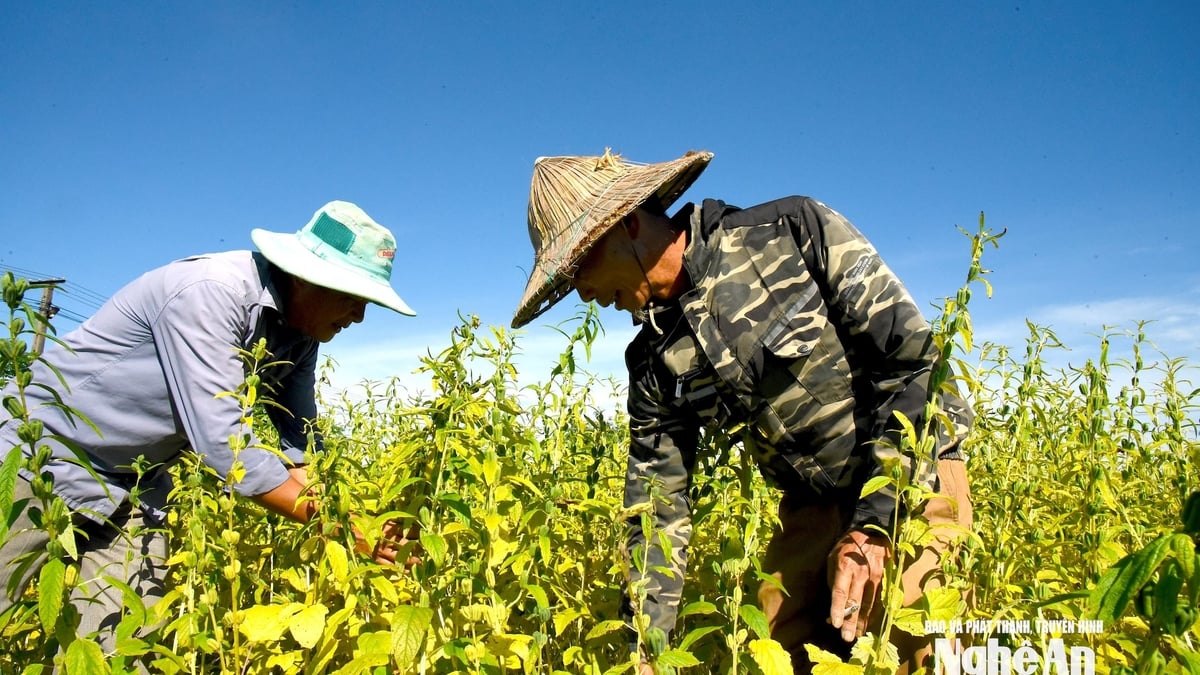



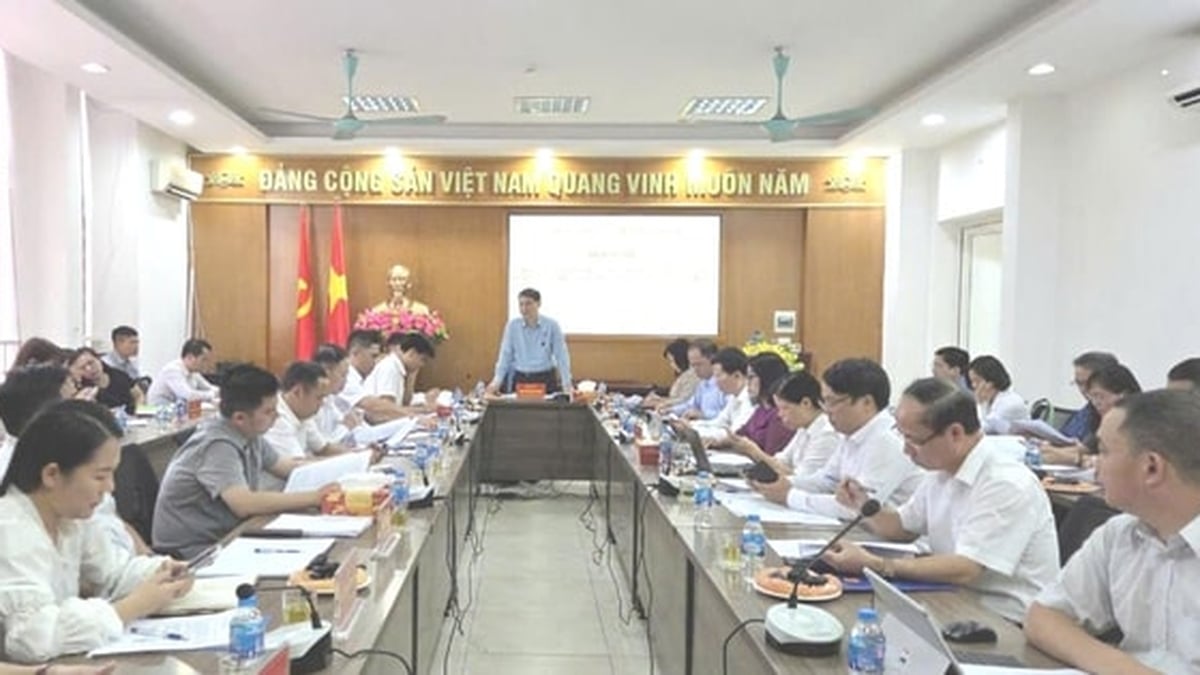
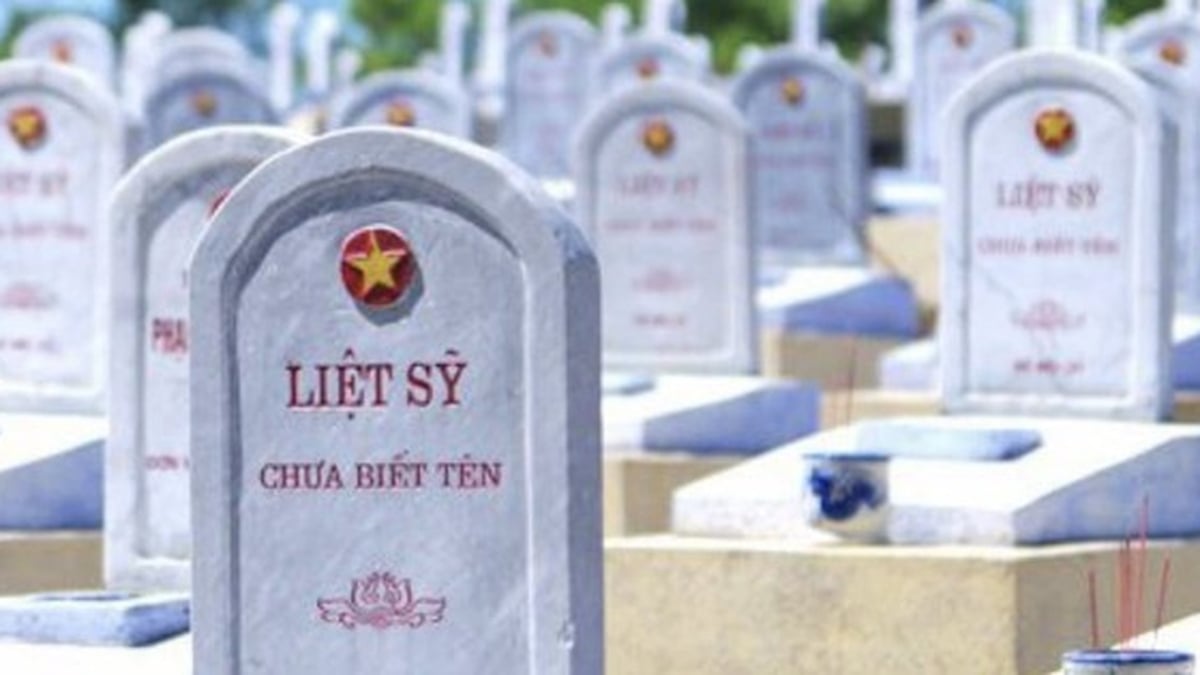

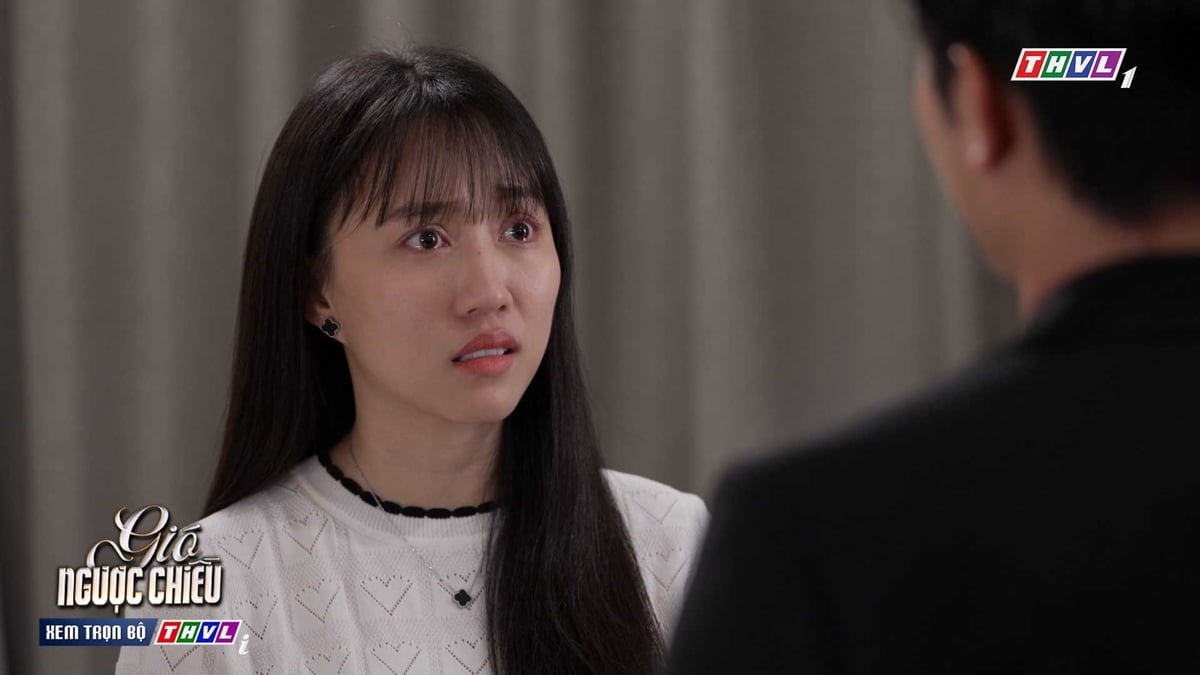










![[Photo] National Assembly Chairman attends the seminar "Building and operating an international financial center and recommendations for Vietnam"](https://vphoto.vietnam.vn/thumb/1200x675/vietnam/resource/IMAGE/2025/7/28/76393436936e457db31ec84433289f72)














































































Comment (0)